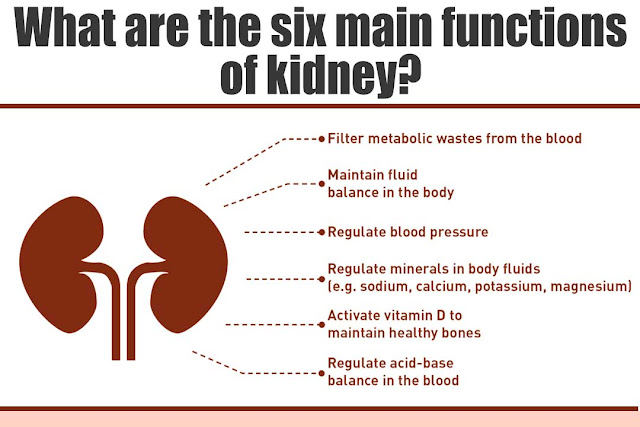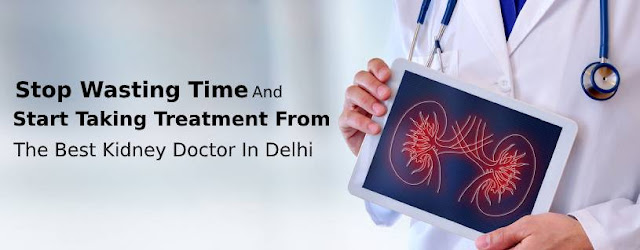Acute kidney disease also referred to as Acute Kidney Injury (AKI) is a kind of health condition in which kidneys lose their functions suddenly; sometimes within a couple of hours or days. The condition is reversible if the immediate treatment is taken.
The signs & symptoms of Acute kidney disease are numerous. Some of them are listed below:
- Loss of Appetite
- Trouble in breathing
- Confusion
- Decreased urine output
- Weakness
- Fatigue
- Nausea
- Vomiting
- Swollen legs, feet, ankles, and hands
- Joint Pain
- Fever
If you have one or more of the above symptoms, it’s time to take a serious step and book an appointment with a kidney specialist who can help you in figuring out the disease correctly and will provide you with the adequate treatment. Acute kidney disease treatment in Ayurveda has proven to be the most effective treatment in order to cure AKI.
Causes of Acute Kidney Failure
If you ask about the causes of Acute Kidney failure, they are several. Some of the leading causes of Acute kidney failure are as follow:
- Low blood flow to the kidneys- When the kidneys do not get sufficient blood to them, they won’t be able to carry out their task efficiently. If the condition lasts longer, it can be a primary cause of Acute kidney failure.
- Blockage in the urinary system- Any kind of blockage in the urinary tract will affect the functionality of the kidneys and can lead to AKF.
- Direct damage to the kidneys- When the kidneys get direct damage, in the condition they will lose their functionality due to the injury occurred in them.
What can be the Most Relevant Treatment Process?
When it comes to the treatment of Acute kidney disease, Allopathic practitioners recommend some specific treatment that is known to cure Acute kidney failure. The treatment method includes:
Certain Medications: An allopathic kidney specialist will prescribe you the medicines in order to regulate the amount of potassium and phosphorous in the blood. The medicines do not help your kidneys but they only eliminate some of the problems occur due to kidney failure.
Along with that, he may also suggest you to keep a watch over the food you intake. He will recommend you to limit the intake of salt and potassium. As these substances are flushed out of the body by the kidneys when they are healthy. In the case of their damage, they won’t be able to excrete them as earlier.
When the Acute kidney injury is severe, a kidney expert will recommend a patient to go on for kidney dialysis. This procedure doesn’t heal the kidneys but performs almost all the functions of the kidneys. The process is effective for a short time period but when the procedure is used for a long period, it can cause many hazardous health issues; sometimes the patient may also lose his life. So, you can say that it is not a permanent and the best solution for Acute kidney disease. While Acute kidney disease treatment in Ayurveda is considered as the best treatment for Acute kidney disease.
How is Acute Kidney Disease Treatment in Ayurveda Effective?
Acute kidney disease treatment in Ayurveda is the most alluring treatment method that consists of herbal medications, kidney-friendly diet and some specific set of yoga stances. This combination is turned out to be the most effective method to cure Acute kidney failure. Ayurvedic medications are composed of herbal extracts that are totally unrefined and pure, as a result, work on the root causes of the disease and stimulate kidney functions. Being made up of herbal extracts, these medicines do not leave any side effects of the patients’ body. Ayurveda also recommends an AKI patient to make some necessary diet changes and also follow some exercises in order to get relieved from this severe health condition efficiently.
What is the role of Karma Ayurveda?
Based in Delhi, Karma Ayurveda is a prominent kidney care center that has been offering Ayurvedic treatment for all sorts of kidney disorders since 1937. With vast experience in the healthcare sector, Karma Ayurveda is dedicated to proffer best-in-class Ayurvedic treatment in order to heal kidney diseases; kidney failure as well. Headed by Dr. Puneet Dhawan, Karma Ayurveda has attained achievement of curing over 35,000 of kidney patients successfully. It is constantly strived for bringing forth the best healing process for kidney diseases. For the same, team Karma Ayurveda works round the clock in order to fulfill its aim of stop kidney dialysis by offering the most effective treatment for kidney disorders.









